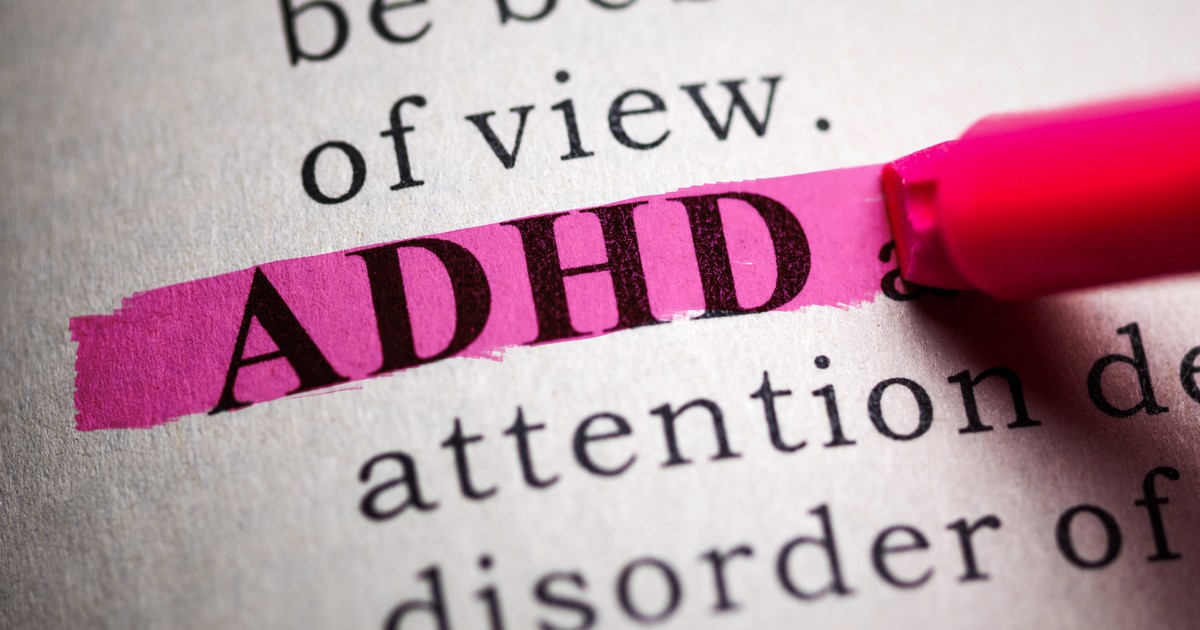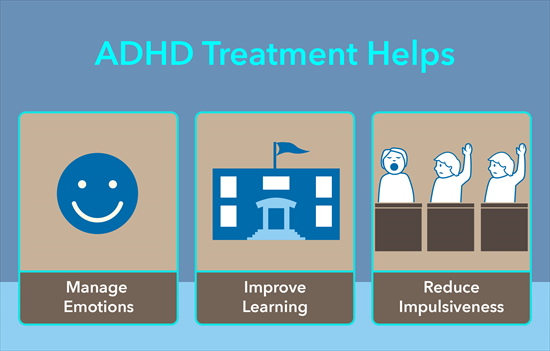ADHD is a mental illness that can start in infancy and last into adulthood. The symptoms can be mild or severe and interfere with daily life activities. There is no single cause of ADHD; it is considered to have components that represent genetic and environmental influences.

Attention Deficit Hyperactivity Disorder (ADHD) is a condition that affects millions of children and adults worldwide. It causes problems with attention, focus, memory, and behavior. Symptoms include trouble paying attention, being quickly distracted, being easily irritated, having difficulty following through on tasks, talking too much, interrupting others, not listening when spoken to directly, and fidgeting. In some cases, people with ADHD have trouble organizing their time and may find themselves constantly late for appointments or missing important events. These symptoms can affect school performance, relationships, and job success.
What are the causes of ADHD?
It is one of the most common mental disorders in children and adolescents, affecting about 5% of the population. Although the etiology of ADHD is uncertain, hereditary and environmental factors cause it. Some possible causes of ADHD include genetics, exposure to toxins, premature birth, and low birth weight.
There are many reasons children develop attention deficit hyperactivity disorder (ADHD). But what exactly causes it? The most common cause of ADHD is genetics. If both parents have ADHD, their child has a 50% chance of developing it.
But other factors can contribute to ADHD. These include:
- Brain injury: This can happen when a baby gets hit on the head during birth. It can also occur later in life if someone has a brain injury, such as a concussion.
- Environmental toxins: This includes exposure to lead, mercury, pesticides, and other chemicals.
- Poor Nutrition: A lack of nutrients such as iron, zinc, vitamin B12, and omega-three fatty acids can affect brain development.
- Stress: When a person is worried, their body casts adrenaline, which affects the brain.
- Sleep deprivation: Lack of sleep can affect brain function.
ADHD Symptoms
ADHD symptoms vary from person to person, but attention, hyperactivity, and impulsivity are included. For children, symptoms of ADHD can impact their ability to learn and get along with others. Adults with ADHD may have difficulty managing time, setting goals, and organizing tasks.
ADHD symptoms in Children
Attention Deficit Hyperactivity Disorder (ADHD) affects millions of children worldwide. The National Institute of Mental Health estimates that one out of ten children has ADHD.
If you suspect that your child may have ADHD, here are some symptoms:
- Hyperactivity: Children with ADHD tend to move too much. They may fidget, squirm, or tap their feet. They may run around the house, talk excessively, or interrupt conversations.
- Impulsivity: Children with ADHD often act before thinking. They may jump into situations without considering the consequences. Or they may fail to consider the feelings of others when making decisions.
- Trouble Concentrating: Children with ADHD often have trouble focusing on schoolwork or activities. They may miss details or make careless mistakes.
- Lack of Self-Control: Children with ADHD often lack self-control. They may break the rules or engage in risky behaviors. They may overeat or drink too much.
ADHD Symptoms in Adults
According to the National Institute of Mental Health, adult ADHD is “a brain disorder characterized by persistent difficulties with paying attention, controlling impulses, and keeping focused.”
The symptoms of adult ADHD include:
- Inattention: Inattentive behavior is defined as being less attentive than usual. This can manifest itself in many ways, such as not paying attention to what others are saying, not listening to instructions, forgetting what needs to be remembered, and having difficulty following through with tasks.
- Hyperactivity: Hyperactive behavior is defined by fidgeting, squirming, running around, talking excessively, interrupting other people, and being unable to sit still.
- Impulsivity: Impulsive behavior is described as acting without thinking about consequences. This may result in poor decision-making, risky behaviors, and trouble controlling emotions.
- Difficulty Maintaining Focus: People with ADHD often find it challenging to stay focused on one task for an extended period. They may also have problems staying organized and completing assignments.
- Problems With Memory: People with ADHD often have trouble remembering information such as appointments, directions, or phone numbers.
The difference between ADHD and ADD
The critical and significant difference between the two conditions is that children with ADHD often exhibit symptoms as early as infancy. Still, adults with ADD typically don’t start experiencing symptoms until later.
Attention Deficit Disorder (ADD) is a mental disorder characterized by focus, hyperactivity, and impulsiveness problems. It is one of the most common mental disorders in children and adolescents. ADD symptoms can interfere with a person’s ability to succeed in school or work and lead to problems in relationships. There is no single cause of ADD, but genetic and environmental factors are believed to be responsible.
Inattention, hyperactivity, and impulsiveness are common attention deficit hyperactivity disorders (ADHD). A person with ADHD may have difficulty focusing on a task, be overly active, and have trouble controlling impulses. Attention Deficit Disorder A person with ADHD may have difficulty focusing on a task, be overly active, and have trouble controlling impulses. Attention Deficit Disorder (ADD) is a similar condition that shares many of the same symptoms as ADHD. However, people with ADD are not as hyperactive as those with ADHD. Some people with ADD also have problems with organization and time management.
How do doctors diagnose ADHD?
It is estimated that 3-5% of children in the United States have ADHD. Many people wonder how doctors diagnose ADHD. Diagnosing ADHD usually involves a combination of interviews with the child and parents and rating scales or questionnaires that the doctor or parents fill out. Doctors will then use this information to make a diagnosis.
ADHD is one of the most prevalent neurodevelopmental diseases, distinguished by attention, hyperactivity, and impulsivity difficulties. The disorder can be challenging to diagnose, as its symptoms often resemble other conditions. To make a diagnosis, doctors typically use a combination of clinical assessment and information from parents and teachers. There is no specific diagnostic for ADHD, but doctors use particular criteria to identify the condition.
There is no definitive test to diagnose ADHD. A healthcare professional will often use various methods to make a diagnosis. They may ask about symptoms and medical history and conduct a physical exam. They may also use psychological tests or rating scales to help them make a diagnosis.
Is there any treatment for ADHD?
Many treatments are available for ADHD, including medication, behavior therapy, and psychotherapy. One of the best ways to treat ADHD is through medication. Cure has proven effective at treating ADHD in children, although some medications are better than others. For example, stimulant drugs like Ritalin and Adderall effectively reduce ADHD symptoms. Other types of medication include antidepressants, which can improve moods and reduce anxiety.

Some people prefer non-pharmacological approaches, such as Cognitive behavioral therapy. This theory is an effective treatment for ADHD. In a study of cognitive-behavioral treatment for ADHD, researchers found that the treatment was associated with significant reductions in ADHD symptoms. The treatment was also associated with improvements in mental health and quality of life.
Another way to treat ADHD is through behavioral therapy. Behavioral therapy is a psychological treatment that helps people learn new skills to manage their problems. It is based on the idea that our behavior is affected by our thoughts, feelings, and environment. Behavioral therapy can help people with ADHD learn new ways to control their behavior.
How to deal with someone who has ADHD?
Many strategies can help someone with ADHD manage their symptoms. One is to break down tasks into smaller parts and make a checklist of what needs to be done. It can also be helpful to set time limits for completing tasks and establish regular routines. The person with ADHD needs to avoid distractions as much as possible to focus on the task at hand.
It’s also essential for loved ones to be patient and understanding. Remember that people with ADHD are not lazy or stubborn; they have a different way of processing information, but there are ways to make it easier. Here are a few tips:
- Learn as much as you can about ADHD. The further you understand the situation, the more prepared you will be to assist your loved one.
- Be patient and understanding. ADHD can be frustrating for both the person with the disorder and those around them. Try not to get angry or frustrated quickly.
- Encourage your loved one to exercise and eat healthy foods. Exercise and good nutrition can help improve ADHD symptoms.
- If you notice changes in your loved one’s behavior, talk to them and try to understand what might be causing it. You don’t need to wait until they tell you something before trying to help.
- If you’re worried about your loved one having trouble getting along with other people, encourage them to join a sports team or social group. This can help them develop friendships and become part of a community.
ADHD Medication
Although there is no one-size-fits-all therapy for ADHD, it is common to give drugs to manage symptoms. Stimulants are the most commonly used medications to treat ADHD. They improve concentration while lowering hyperactivity and impulsivity. Antidepressants and anti-anxiety drugs are examples of other medicines that may be provided.
There are three main types of ADHD medication: stimulants, non-stimulants, and atomoxetine. Stimulants are the most commonly used type of medication for ADHD. They consist of drugs such as methylphenidate Ritalin and amphetamine dextroamphetamine Adderall. Stimulants help improve focus and attention, decrease hyperactivity and impulsiveness, and improve academic performance.
Medication can be beneficial for some persons with ADHD, but it is not always feasible. For instance, if the person does not respond well to medication, they may benefit from additional counseling or behavioral therapy.
In conclusion, ADHD is a disorder that impacts many people and can significantly affect their lives. While many treatments are available, not everyone responds to them the same way. There’s still a lot to learn about ADHD and how to treat it. Please get treatment from a doctor or therapist if you or someone you know suffers from ADHD.

